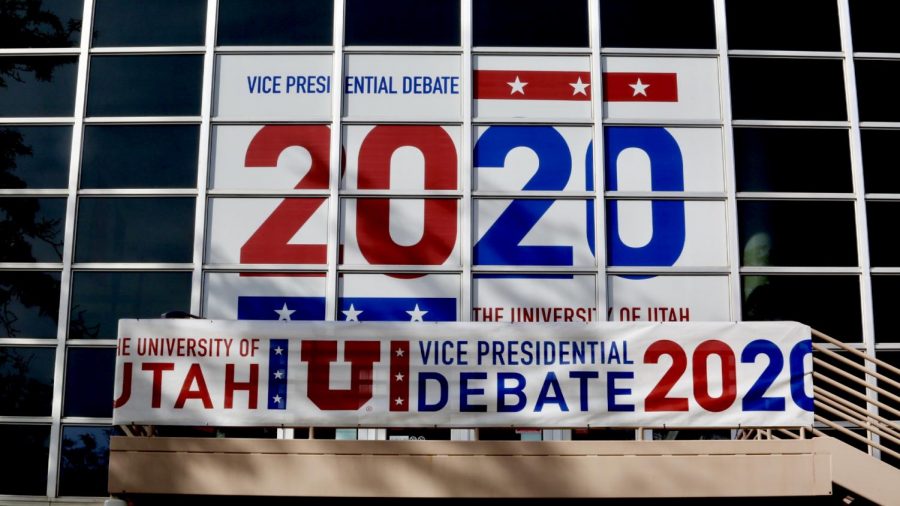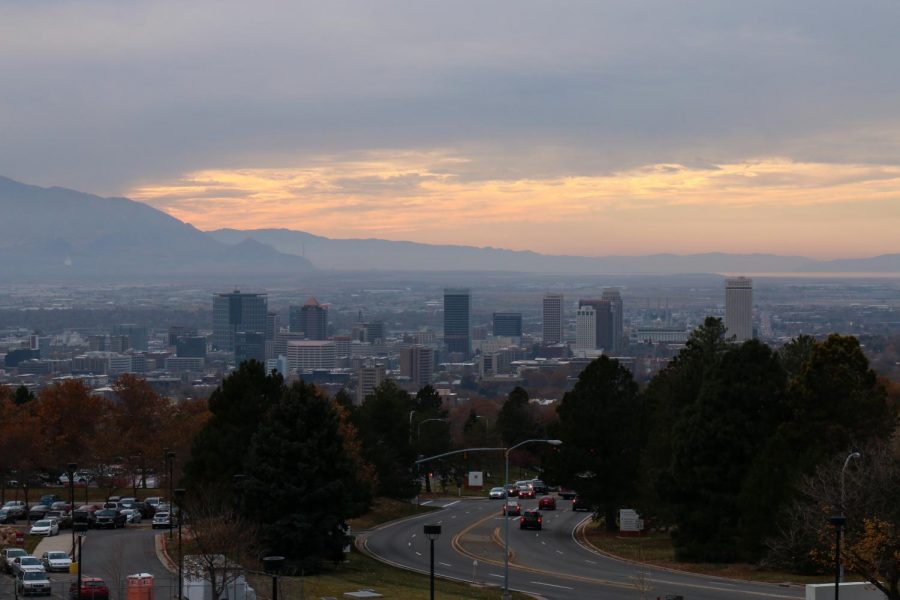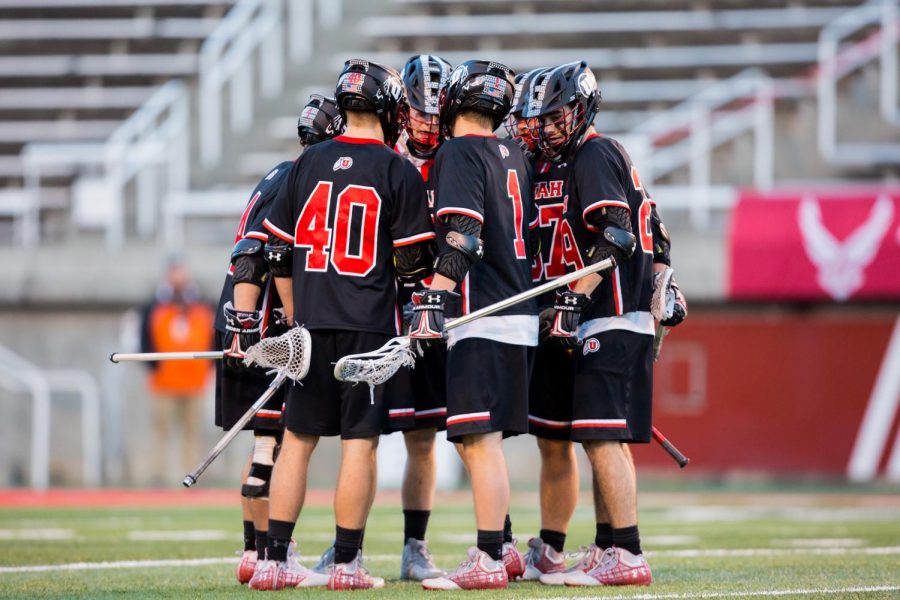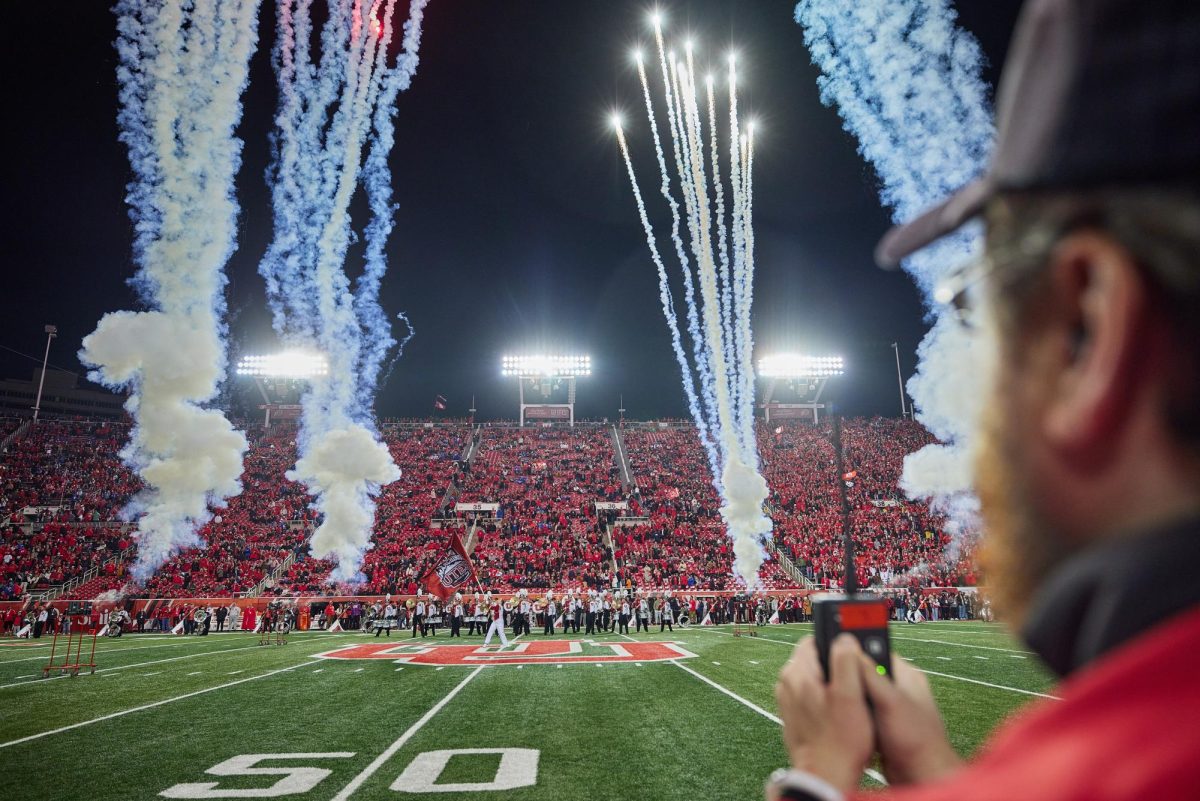Cushman: Presidential Debates Are Not Hard Enough
An advertisement for the 2020 Vice Presidential Debate at the Student Union at the University of Utah campus in Salt Lake City on September 28th 2020. The last 2024 Presidential Debate will also be held at the U. (Photo by Camille Rousculp | The Daily Utah Chronicle)
October 5, 2020
In previous elections, presidential debates have influenced the majority of Americans’ votes. They offer a platform for presidential candidates to share their platforms and demonstrate why they are different and better than other candidates. However, the current structure of presidential debates, from easy questions and short response times to bad moderators, does not challenge presidential candidates or force them to demonstrate that they have the skills of a good president. These events that sway voters should be an adequate measure of a candidate’s capacity to serve in the nation’s most powerful role.
Easy Questions
Serving as president requires a wide variety of skills. The chief executive of the United States needs to be able to manage a staff of educated people, treat people with diplomacy and solve complex problems, among other demanding tasks. Debate questions don’t test any of those skills. Most questions focus on a candidate’s history or specific policy beliefs. While those questions can have value, they offer little more information than can be found on a candidate’s website or in a news article.
For example, in one of this year’s Democratic primary debates, CNN asked Bernie Sanders if he owed voters a price tag for his healthcare plan. This question did not push Bernie to say something new about his values; free healthcare has always been a large part of his ideology. It did not ask him to demonstrate any skills a president might need. Looking back further to the first 2016 presidential debate, questions about Donald Trump and Hillary Clinton’s histories resulted in deflection and aversion. When asked about releasing his tax returns, Trump brought up Clinton’s email scandal. When Clinton was asked about her email scandal, she called on Trump to release his tax returns. The audience learned nothing new about how Trump and Clinton viewed the role of the president, what their priorities would be when they entered office or whether they had the skills necessary for the job.
Not all debate questions are bad, but collectively they let our candidates off the hook by not forcing them to demonstrate their ability to fulfill the presidential role. Redesigning debates to include challenges or differently structured questions would push candidates to demonstrate their ability to handle one of the most complex jobs. This would make presidential debates a much more effective part of the democratic process.
Short Response Times
Limited response times also undermine the usefulness of presidential debates. Candidates often receive only a few minutes to respond to questions. This means that more questions can be asked during the run time of the debate, but there is little time for complex, well thought out responses on any given topic. How can a candidate explain why they care about a certain issue, what changed their mind about a specific policy or how they would execute detailed plans in just two minutes? There is only enough time for them to reiterate information that is likely already on their campaign website. There would be room for harder questions and better answers if candidates had more time to explain who they are and what they have to offer to the American public.
What Is a Moderator?
In an ideal world, moderators would be able to mitigate some of these problems. They could put more pressure on candidates dodging questions, push for details and fact check responses. Moderators generally come from the “upper echelons of broadcast journalism.” Unfortunately, their primary role is not to act as a journalist or representative of the American public and our interests, but to entertain viewers and help news channels gain more ad revenue.
In this past week’s chaotic presidential debate, moderator Chris Wallace did not fact check candidates. This is not a failure unique to Chris Wallace or Fox News. Many moderators elect not to fact check and leave that to the discretion of the public. Many Americans, however, lack the time and resources to fact check entire hour-long debates. Without any real-time accountability, politicians can blatantly lie to and mislead voters about their opponent as well as their own policies. Honest elections should be built on a foundation of honest candidates, and moderators who won’t enter the fray to maintain the truth are only an obstacle.
The United States completely wastes debate events that could aid the democratic process and give candidates a platform to prove their qualifications. Instead, they don’t challenge candidates or force them to prove themselves to voters. Media outlets and the Commission on Presidential Debates need to restructure these events to serve a meaningful purpose for both candidates and voters — and simply muting microphones is not enough.












